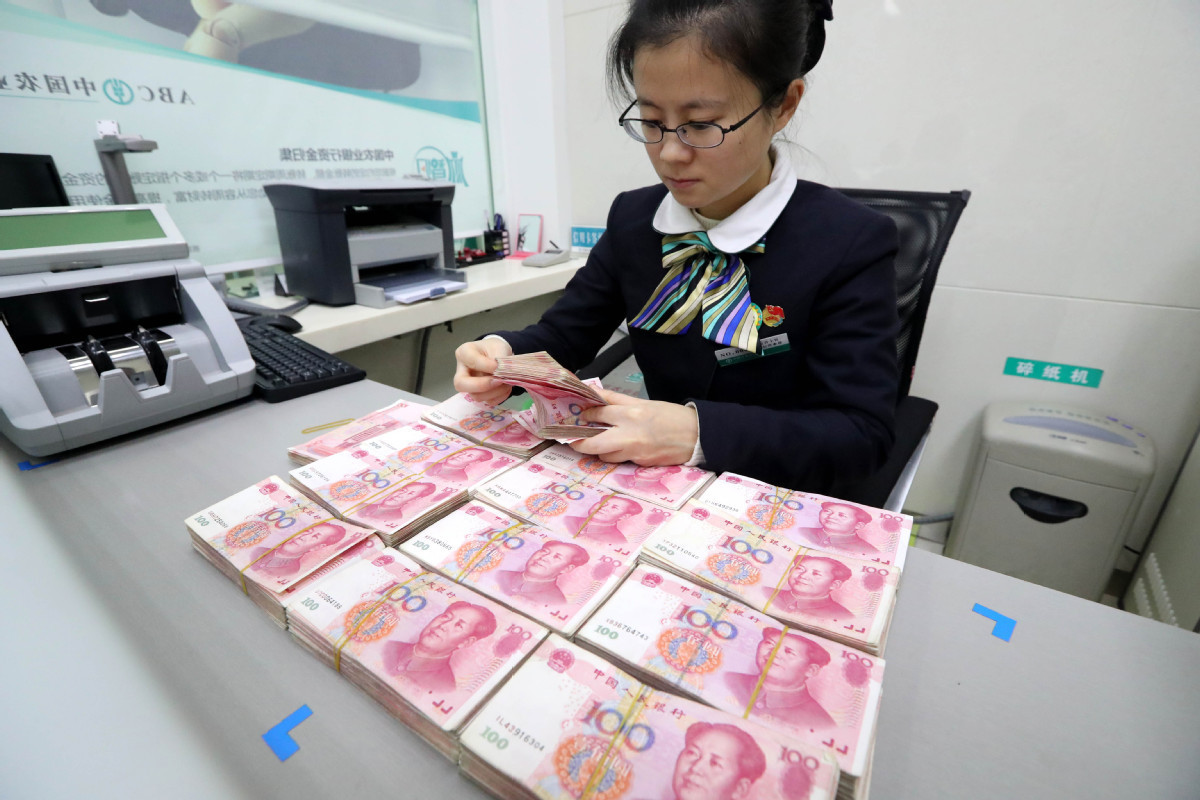Policy focus veers to risk prevention


Improving quality, efficiency of fiscal steps key task, says finance minister
China will keep government spending and fiscal measures at reasonable levels this year and enact more policies to deal with new risks, while ensuring a reasonable budget deficit ratio and an adequate scale of local government special bonds, Finance Minister Liu Kun said.
The thrust this year would be on improving the quality and efficiency of fiscal policies and ensuring that they are sustainable, Liu told Xinhua in an interview on Tuesday.
"The government should tighten its belt to save money and make sure that people can live a good life," he said.
The minister highlighted the need to balance the relationship between promoting development and preventing risks, and called for reasonable conduct of fiscal deficit, debt and expenditure policies.
Liu also stressed the need to actually implement tasks for defusing the implicit debt risks of local governments. "At present, the debt risks of local governments are generally controllable. In some regions, however, the hidden debt is still increasing, with default risks rising in certain areas," he said, adding that the government would pay "close attention" and stay on "high alert "in this regard.
The minister said government spending will remain at reasonable levels, while the debt-to-economic output ratio, or the macro leverage ratio, will remain largely stable.
China will increase fiscal support to the prefecture-and county-level governments through the special direct fiscal transfer system and also consider expanding the scope of the fund use, said Liu.
The direct fund transfer system was innovated and established in May by the Ministry of Finance since the COVID-19 epidemic to ensure that primary-level government departments and market entities benefit from the government's financial support.
Fiscal funds amounting to 1.52 trillion yuan ($234.71 billion) had been transferred to the prefecture-and county-level governments through the specified payment mechanism by Dec 29, according to data from the ministry.
The annual budget for this year is expected to further strengthen support for local governments, and the central government will prioritize expenditure on securing people's livelihood, income payments and operation of local-level departments and institutions, said Liu.
Liu also said China will continue to cut taxes and fees this year to support the corporate sector. Tax and fee cuts might have exceeded 2.5 trillion yuan in 2020, while the nation has reduced about 7.6 trillion yuan of taxes and fees during the five years from 2016 to 2020, he said.
Fiscal expenditure will mainly focus on sectors like employment, education, social welfare, public health and cultural industries, the finance minister said, adding that the government will strengthen supervision on fiscal spending.
By the end of November, China's general budgetary revenue stood at 5.3 percent on a yearly basis, moderating from a decline of 10.8 percent during the first six months of 2020, as the economies of most regions in the country recovered strongly, according to official data.
"We expect recovery to continue, with most regions reaching pre-pandemic growth in the fourth quarter. The full-year revenue growth is expected to exceed the budgeted target in 2020," said Amanda Du, a senior credit officer at Moody's Investors Service, a global credit ratings agency.
Following contractions in the first two quarters, regional and local governments' fiscal revenue increased on a quarterly basis for the first time in the third quarter in 2020, according to Moody's.
Yan Se, an associate professor at the Guanghua School of Management of Peking University, said the government was unlikely to reduce too much of budgetary funds this year as it was focused on sustaining the economic recovery.
Since the country's leverage pressure is still moderate and the macroeconomic situation is improving steadily, a high fiscal deficit ratio is unlikely to push debt levels beyond the safety zone, said Yan.




































